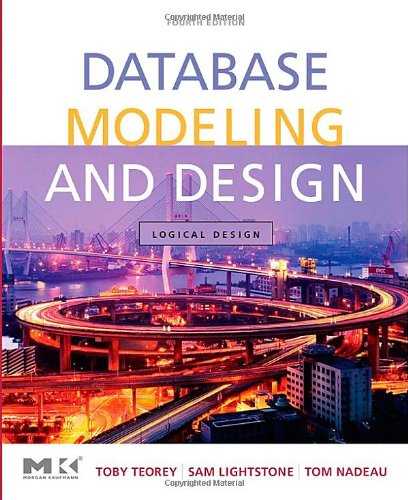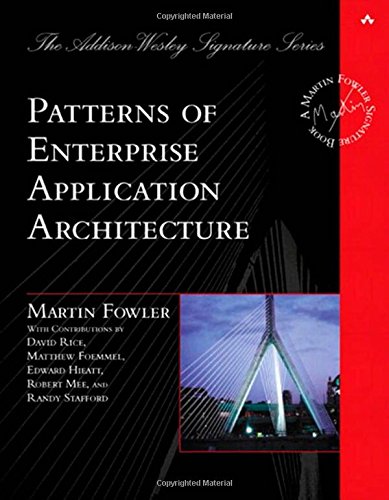(Part 2) Top products from r/Database
We found 23 product mentions on r/Database. We ranked the 58 resulting products by number of redditors who mentioned them. Here are the products ranked 21-40. You can also go back to the previous section.
21. Data Modeling Made Simple, 2nd Edition: A Practical Guide for Business and IT Professionals
Sentiment score: 1
Number of reviews: 1
Used Book in Good Condition
 Show Reddit reviews
Show Reddit reviews22. OCA Oracle Database 11g Administration I Exam Guide (Exam 1Z0-052)
Sentiment score: 1
Number of reviews: 1
NewMint ConditionDispatch same day for order received before 12 noonGuaranteed packagingNo quibbles returns
 Show Reddit reviews
Show Reddit reviews23. The Practical SQL Handbook: Using SQL Variants (4th Edition)
Sentiment score: 1
Number of reviews: 1
The Practical SQL Handbook: Using SQL Variants 4th Edition. With Sealed CD-ROMDetailed coverage of SQL commands for creating databasesUsing the SELECT commnad to retrieve specific dataCreating views (virtual tables) to provide customized access to dataA bonus CD-ROM
 Show Reddit reviews
Show Reddit reviews24. OCA Oracle Database 11g SQL Fundamentals I Exam Guide: Exam 1Z0-051 (Oracle Press)
Sentiment score: 2
Number of reviews: 1
 Show Reddit reviews
Show Reddit reviews27. OCA Oracle Database 12c SQL Fundamentals I Exam Guide (Exam 1Z0-061) (Oracle Press)
Sentiment score: 0
Number of reviews: 1
 Show Reddit reviews
Show Reddit reviews28. Information Modeling and Relational Databases (The Morgan Kaufmann Series in Data Management Systems)
Sentiment score: 1
Number of reviews: 1
Morgan Kaufmann Publishers
 Show Reddit reviews
Show Reddit reviews29. Joe Celko's SQL for Smarties: Advanced SQL Programming (The Morgan Kaufmann Series in Data Management Systems)
Sentiment score: 1
Number of reviews: 1
NewMint ConditionDispatch same day for order received before 12 noonGuaranteed packagingNo quibbles returns
 Show Reddit reviews
Show Reddit reviews30. Database Modeling and Design: Logical Design, 4th Edition (The Morgan Kaufmann Series in Data Management Systems)
Sentiment score: 1
Number of reviews: 1
 Show Reddit reviews
Show Reddit reviews31. Foundations of Databases: The Logical Level
Sentiment score: 1
Number of reviews: 1
 Show Reddit reviews
Show Reddit reviews33. Microsoft Excel and Access Integration: With Microsoft Office 2007
Sentiment score: 0
Number of reviews: 1
 Show Reddit reviews
Show Reddit reviews34. Database Design for Mere Mortals: A Hands-On Guide to Relational Database Design (2nd Edition)
Sentiment score: 1
Number of reviews: 1
Relational Database DesignDisign ObjectivesTerminologyEstablishing Table StructuresAnaylyzing the current database
 Show Reddit reviews
Show Reddit reviews35. Analysis Patterns: Reusable Object Models
Sentiment score: 1
Number of reviews: 1
 Show Reddit reviews
Show Reddit reviews36. Readings in Database Systems (The MIT Press)
Sentiment score: 1
Number of reviews: 1
 Show Reddit reviews
Show Reddit reviews37. Patterns of Enterprise Application Architecture
Sentiment score: 1
Number of reviews: 1
 Show Reddit reviews
Show Reddit reviews38. Introduction to SQL: Mastering the Relational Database Language (4th Edition)
Sentiment score: 1
Number of reviews: 1
 Show Reddit reviews
Show Reddit reviews




I'm no expert in database certification so I won't comment on them, but they sound expensive. I'm sure you could go a long way in improving your skills by working through some free resources and classic texts.
A nice tutorial on fundamentals is:
http://philip.greenspun.com/sql/
A classic introductory to intermediate text is the following. It can get you amazingly far because even advanced topics are explained well:
http://pages.cs.wisc.edu/~dbbook/
Don't get thrown off by the publication year. The fundamentals of relational databases have barely changed for decades.
An excellent in-depth look at database theory is presented in:
http://www.amazon.com/Foundations-Databases-The-Logical-Level/dp/0201537710
For data warehousing and analytical querying (beyond Ramakrishnan et al) this is a great resource:
http://www.amazon.com/The-Data-Warehouse-Toolkit-Dimensional/dp/0471200247
Source: I'm a graduate student in databases.
For your particular application I would look at OpenStreetMaps. Otherwise...
David Hay's
Len Silverston's
Michael Blaha's [Patterns of Data Modeling][7]. This one has some interesting temporal, graph, and tree models.
Martin Fowler's [Analysis Patterns][8]. This one skims some of the other patterns, but gives accounting a solid treatment.
They are all well-rated, and I have read all but one, and they are all very good. Several of them are available on [safaribooksonline][9].
Also, OASIS's [Universal Business Language][10], schemas
[1]: http://www.amazon.com/Enterprise-Model-Patterns-Describing-Version/dp/1935504053/ref=sr_1_1?s=books&ie=UTF8&qid=1346950468&sr=1-1&keywords=enterprise%20model%20patterns
[2]: http://www.amazon.com/Data-Model-Patterns-David-Hay/dp/0932633749/ref=pd_sim_b_2?ie=UTF8&refRID=1PQPGE4E6T2RPR2XTN80
[3]: http://www.amazon.com/Data-Model-Patterns-Metadata-Management/dp/0120887983/ref=pd_sim_b_3?ie=UTF8&refRID=1PQPGE4E6T2RPR2XTN80
[4]: http://www.amazon.com/Data-Model-Resource-Book-Vol/dp/0471380237/ref=pd_sim_b_3?ie=UTF8&refRID=08T9TEZJNZM2EMKZV3AB
[5]: http://www.amazon.com/Data-Model-Resource-Book-Vol/dp/0471353485/ref=pd_sim_b_3?ie=UTF8&refRID=1D5TDG7479G7TQMBPNWF
[6]: http://www.amazon.com/Data-Model-Resource-Book-Vol/dp/0470178450/ref=pd_sim_b_4?ie=UTF8&refRID=08T9TEZJNZM2EMKZV3AB
[7]: http://www.amazon.com/Patterns-Modeling-Emerging-Directions-Applications/dp/1439819890/ref=sr_1_1?s=books&ie=UTF8&qid=1346950554&sr=1-1&keywords=patterns%20of%20data%20modeling
[8]: http://www.amazon.com/Analysis-Patterns-Reusable-Object-Models/dp/0201895420/ref=sr_1_1?s=books&ie=UTF8&qid=1346961699&sr=1-1&keywords=analysis+patterns
[9]: http://my.safaribooksonline.com/search?q=data%20model
[10]: http://en.wikipedia.org/wiki/Universal_Business_Language
Since relational databases are a mature technology, there is some well-established theory that is very useful to learn (in conjunction with the more practical, vendor-specific knowledge).
I'd suggest:
Database Management Systems - an undergrad-level textbook with a good balance of theory and practice, foundations and advanced material.
Readings in Database Systems - a compilation of influential academic papers from the database field.
Data Modeling Made Simple - a great little book that bridges the gap between databases and the real-world entities they store.
I also recommend reading this book: Patterns of Enterprise Application Architecture
http://www.w3schools.com/sql/default.asp
Judith Bowman's book is pretty good.
What courses does your school offer for databases? SQL? Administration?
A great starting point would be to learn and become proficient in SQL:
http://www.amazon.com/Oracle-Database-Fundamentals-Exam-Guide/dp/0071597867/ref=sr_1_2?ie=UTF8&qid=1415821007&sr=8-2
After that, pick up the book for the 2nd Oracle OCA exam, Administration 1.
https://www.amazon.com/Database-Design-Mere-Mortals-Hands/dp/0201752840
I read that book back in college for my Databases class and thought it was a pretty easy read. It's long, but can also surprisingly be a quick read, esp if you just go thru it w/ a highlighter and don't take much notes beyond that.
There's also a newer version of the book available.
Are there any specific questions you have about databases tho, or any specific topics that confuse you? What database software are you guys working with? MySQL? MariaDB? Microsoft Access? PostgreSQL? MongoDB?
You're thinking like a java developer. Stop thinking open source and retrain your mind to think in sets. Once you've got the basics of set-based computing down, the particular DBMS you end up working with is just a matter of learning server config and eventually the nuances of particular execution plan creation and management.
Try something like this that is totally independent of RDMS. Learn the fundamentals of the SQL language, thinking in terms of sets, and basic performance management through indexing and you'll be miles ahead of the game.
For data modeling, I prefer Object Role Modeling (ORM2) over UML. It gives you a conceptual model (ideas and relationships) rather than a logical model (tables and columns), which ends up being more semantically stable as you refine your domain.
The cool thing is that you can generate a 5th Normal Form logical model from it algorithmically. The NORMA tool for Visual Studio can even generate the Barker ER diagram for those who prefer that view.
Full disclosure: I'm a fanatic of ORM2 and have started blogging about fact modeling in my
copiousspare time.EDIT: The definitive work on ORM2 is Terry Halpin's book
Database Modeling and Design
My ex was building some databases for a job and I found this book (well an older version) to be excellent and concise about explaining the why behind database design.
Agreed, OP, you're massively overcomplicating this. If you learn a bunch of math and theory to try and become a database professional you will just come across as an academic rather than someone who can get work done. Learn how to get work done. Check out books like SQL Cookbook and SQL For Smarties to learn stuff that will actually help you do what you need to do.
You do want to have normalization down and basically understand set theory, but you're already doing that.
This might be good. You can also read some of the documentation/white papers/marketing materials on otn.oracle.com for Exalytics and/or TimesTen
I'd recommend first, the Inside SQL Server Series mentioned above. Also I'd recommend the Guru's guide to Transact-SQL. I found it really enhanced my skills in T-SQL over the years. I'd run into some difficult problem only to think 'hey, the guru's guide had something on this....'. I tried to re-read it every year. Also, lots of good code samples.
Last DB book I purchased was Database Systems
read https://www.amazon.com/Refactoring-Databases-Evolutionary-paperback-Addison-Wesley/dp/0321774515 and use Liquibase or Flyway or Sqitch